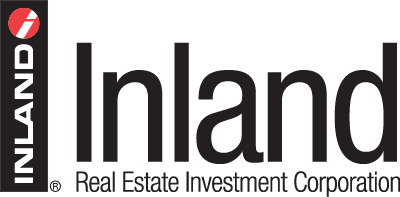What to know when evaluating a DST sponsor
A Delaware statutory trust, or DST, is an investment vehicle that offers an accredited investor the opportunity to own a fractional interest in institutional-grade commercial real estate. Beneficial interests in DSTs are considered “like-kind” property for purposes of 1031 exchanges. DSTs may own a single property, properties within a single geographic region, a combination of properties in a focused geography or multiple properties in various geographic locations. In the context of a 1031 exchange, investors can allocate assets to one or more DSTs, providing a more diversified real estate portfolio.
DST sponsors are professional real estate companies that identify properties and structure DST investment programs owning those properties. A primary role of an experienced sponsor is, directly or through affiliates, to manage each property owned by the DST including asset management duties, quarterly reporting, annual tax and reporting packages, performance reviews and budgets. In addition, many sponsors have an investor relations team to handle investor requests and inquiries.
With the interest in DSTs growing and the number of DST sponsors increasing each year, it’s important to conduct thorough sponsor due diligence to ensure investors aren’t exposed to unnecessary risk.
Key Topic to Evaluate
Industry Expertise: DSTs are sophisticated investment structures and every DST sponsor should have extensive experience in DSTs. Review the sponsor’s executive management team and their backgrounds – how long they’ve worked in the real estate industry and familiarity with acquiring and managing DST investments. An experienced DST sponsor should be able to diversify among multiple asset classes, fully understand each asset class offered by the DST, and be ingrained in the activity of the markets in which the properties are located.
Track Record: A sponsor’s track record provides useful information on all of its previous investment programs, including how the properties performed, including distributions investors received and capital appreciation. This data gives insight into how well the sponsor manages their properties. Look at the length of the track record and the various economic cycles the sponsor has experienced. A track record that covers 10, 15, or 20-plus years offers more insight into the sponsor’s management and investment expertise. However, always be aware that past performance does not guarantee future results.
- Underwriting Standards: The cash flow and total returns projected for any DST investment are based on a sponsor’s underwriting. Some DST sponsors take a very conservative approach towards underwriting, preferring to under-promise and over-perform. The goal for sponsors with conservative underwriting is to exceed expectations for investors.
- Acquisition Process: Find out how the sponsor identifies and performs diligence on the properties to be acquired by a DST. Some sponsors will use their own balance sheets to fund the DST’s acquisition of a property prior to syndicating that property to investors. By doing so, the sponsor is reducing the risk that the DST will not have raised sufficient capital from investors to close the acquisition of a particular property.
- Transparency: A big part of evaluating a DST sponsor includes making sure a sponsor can offer clear insight into every aspect of the business, specifically whether the sponsor performs cash basis audits on its sponsored properties. A sponsor that can provide a timely cash basis audit typically gives a review of the procedures related to rent collections and paid expenses, along with tracing rent receipts to bank accounts, and verifying all accounts to bank statements, including reserve accounts.
- Sponsor Fees: When structuring a DST investment, many DST sponsors will themselves be entitled to certain fees and reimbursements as part of the use of proceeds. Such fees may include acquisition fees, disposition fees, and asset management fees. Not all fees are created equal and it’s important to assess how the fees compare to other sponsors in the industry. A sponsor’s fees should be competitive and not significantly reduce an investor’s potential total return.
- Investor Communications: An important responsibility of a DST sponsor is to keep investors updated on the status of their DST investments and properties. A sponsor should have an excellent ability to communicate with interested parties and regularly keep investors informed of the DST’s performance. Timely reporting and communication are especially important when it comes to providing year-end operating statements for investors to file their tax returns.
- Ongoing Support & Guidance: Executing a Section 1031 exchange can be complicated and involve multiple parties. Look for a DST sponsor with deep knowledge of the steps needed to complete a Section 1031 exchange and that are willing to offer guidance throughout the entire exchange process. Some DST sponsors will also provide ongoing support beyond the initial Section 1031 exchange.
Every DST sponsor differs in experience, strategy, and overall capability. Additional topics to consider when evaluating a DST sponsor is the sponsor’s strengths and weaknesses, any potential conflicts of interest, the sponsored program’s intended exit strategy, how the sponsor performs due diligence on the property, and any third-party reporting that may be available. We recommend that every potential DST investor review due diligence information with a financial professional before investing.




